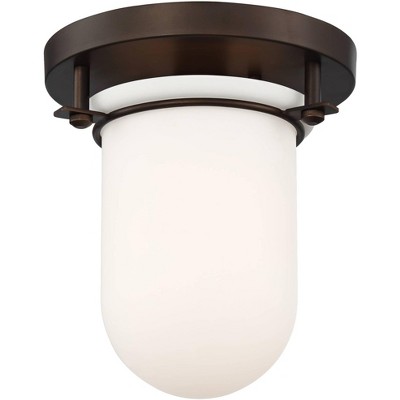Nano-Chips 2030 - (Frontiers Collection) by Boris Murmann & Bernd Hoefflinger (Paperback)

Similar Products
Products of same category from the store
AllProduct info
<p/><br></br><p><b> Book Synopsis </b></p></br></br>In this book, a global team of experts from academia, research institutes and industry presents their vision on how new nano-chip architectures will enable the performance and energy efficiency needed for AI-driven advancements in autonomous mobility, healthcare, and man-machine cooperation. Recent reviews of the status quo, as presented in CHIPS 2020 (Springer), have prompted the need for an urgent reassessment of opportunities in nanoelectronic information technology. As such, this book explores the foundations of a new era in nanoelectronics that will drive progress in intelligent chip systems for energy-efficient information technology, on-chip deep learning for data analytics, and quantum computing. Given its scope, this book provides a timely compendium that hopes to inspire and shape the future of nanoelectronics in the decades to come.<p/><br></br><p><b> From the Back Cover </b></p></br></br><p>In this book, a global team of experts from academia, research institutes and industry presents their vision on how new nano-chip architectures will enable the performance and energy efficiency needed for AI-driven advancements in autonomous mobility, healthcare, and man-machine cooperation. Recent reviews of the status quo, as presented in CHIPS 2020 (Springer), have prompted the need for an urgent reassessment of opportunities in nanoelectronic information technology. As such, this book explores the foundations of a new era in nanoelectronics that will drive progress in intelligent chip systems for energy-efficient information technology, on-chip deep learning for data analytics, and quantum computing. Given its scope, this book provides a timely compendium that hopes to inspire and shape the future of nanoelectronics in the decades to come. <br></p><p/><br></br><p><b> About the Author </b></p></br></br><p>Bernd Hoefflinger became an Assistant Professor at Cornell University, Ithaca, NY, USA, after completing his Ph.D. at the Technical University of Munich, Germany. He was a co-founder of the MOS Division of Siemens in Munich, and founded the Electrical Engineering Department of the University of Dortmund, Germany, which houses the first Ion-Implanted BiCMOS production line. After serving as Head of the Electrical Engineering Departments at the University of Minnesota and then at Purdue University in Indiana, he established the Institute of Microelectronics Stuttgart, Germany, as the first ISO 9000-certified research and manufacturing facility - a leader in ASICs, HDR vision, and e-beam-driven nanotechnology.<br></p><p>Boris Murmann received his Ph.D. degree from the University of California, Berkeley, in 2003, and serves as a Professor of Electrical Engineering at Stanford University. His research interests are in mixed-signal integrated circuit design, with a focus on sensor interfaces, data converters, and custom circuits for embedded machine learning. He has served as an Associate Editor of the IEEE Journal of Solid-State Circuits, an AdCom member and a Distinguished Lecturer of the IEEE Solid-State Circuits Society, as well as the Data Converter Subcommittee Chair and the Technical Program Chair of the IEEE International Solid-State Circuits Conference (ISSCC). He is a Fellow of the IEEE.<br></p>
Price History
Cheapest price in the interval: 98.99 on November 8, 2021
Most expensive price in the interval: 98.99 on December 20, 2021
Price Archive shows prices from various stores, lets you see history and find the cheapest. There is no actual sale on the website. For all support, inquiry and suggestion messagescommunication@pricearchive.us



















